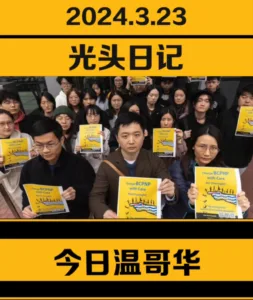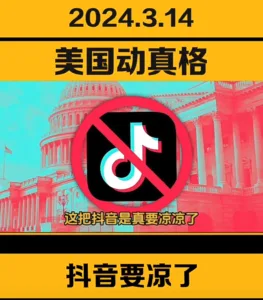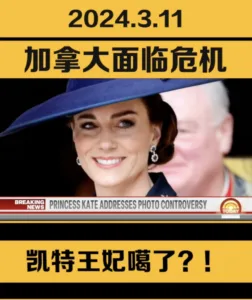“还有一个原因是美国人的退休储蓄计划401K对提前取款的惩罚特别大。
”
The author only mentioned 401K. I agree that money in the 401K is difficult to access (when money is taken out before retirement, regular income tax plus 10% penalty applies). However, do you know anything about Roth IRA that Suze Orman is very fond of? As a matter of fact, Suze’s ranking order of retirement planning contribution is as follows: 1. Contribute to your 401K only to the point your contribution is matched by your employer. 2. Then, contribute fully to your Roth IRA. Because you use your after tax money making Roth IRA contribution, the principal amount is always available to you at no extra tax or penalty, which means it is easier to touch your retirement money. It’s the investment gain that you have to leave in your Roth IRA plan in order to achieve tax savings. In fact, your investment gain in your Roth IRA is tax exempt as long as you take it out after retirement, not just tax deferred as investment gain in an RRSP plan. In that sense, Roth IRA is a far more superior retirement planning vehicle than RRSP.
“姜博士让大家不要买终生保险的另一个原因是因为他认为保险公司和经纪人会因此而获得高额利润。
”
Why shouldn’t commission amount paid to insurance brokers be considered? I guess the author is a licensed insurance sales agent and makes a living on whole life, universal life and term-100 life insurance. Who pays for the commission? Well, that money comes out of the pocket of the insured. As an insured, you need to pay commission, marketing costs, administration fees, overhead costs and the insurance company’s profit.
“如果把买终生保险的钱省下来投资互惠基金,30年下来,经纪人会获得多少佣金?会比终生保险的多很多。
”
Let’s talk about commission. The management fee in mutual funds is for the fund managers to actively manage the fund. Suze Orman says only buy no-load mutual funds, which have no sales commission. Many researches suggest that there is no correlation between loads and return. What kind of active management does an insurance sales agent perform after he/she sold a life insurance policy? I have seen some people have a universal life policy with the death benefit of just $100,000, probably because they could not afford the premium for a higher death benefit. Think about it, how long can $100,000 last? When your kids are still toddlers, $100,000 won’t even last to their teenage years, not to mention post secondary education.
“并不是美国人都视终生保险为敝屣,否则的话, 美国的AIG如果只卖定期保险, 怎么可能成为世界保险业的巨人 “
I am not convinced by the argument that because big life insurance companies are extant and profitable, one of the products, universal life, must make sense to customers. Think about tobacco and junk food. Are they good for you? All the tobacco companies and junk food manufactures and providers are doing just fine. I would also like to mention that Canada does not have estate tax, while US has it. (Probate fee is different than estate tax. You can establish trust to avoid probate fees. You or your estate does have to pay for capital gain upon death or transferring property into a trust, as it is a deemed disposition.) According to one of the author’s arguments, this should make universal life insurance more popular in the U.S., which is not the case as indicated in the article.
“这样一代一代地避税传递财富,后代会越来越富有。
这就是为什么加拿大市场并不很大,富人却比比皆是。
”
I don’t believe the reason that there are many wealthy people in Canada is because those people’s ancestors bought universal life insurance. I believe that whole/universal life insurance is an effective tax-planning tool ONLY if the person is filthy rich when contemplating life insurance products. I believe the right order is paying off your mortgage/maximizing your RRSP (and RESP) contribution, building wealth outside your RRSP while enjoying life. Then if you still have excessive money you don’t know where to spend, you can think about purchasing universal life insurance. Even then, there are far better ways to minimize your tax than buying a universal life insurance. When you are alive, you can set up a business or even just a contract to pay your kids or grandkids (if you’re old enough) to work for you and pay them up to the lowest tax bracket. You can contribute to their RESP to the maximum amount. You can just give them money directly. If you don’t trust your kids/grandkids with your money when you are alive, set up investment accounts in their name but keep the control. Believe me, you will leave them more wealth than the death benefit if you invest your monthly premium difference between a whole life and a term-20 insurance into the account. To give you a more visual effect, please follow the link http://www.swlearning.com/finance/b…e/pvtables.xls. You will be amazed, when time is on your side, how time can work magic for your money. If you really are filthy rich or just reasonably wealthy, you should consult tax planning and estate planning experts to map out a good plan for you and your offspring’s future. There are many ways to minimize your tax, such as an investment in a private company, either an investment holding company or an active business, setting up a testamentary trust in your will or an alter ego trust. The expert(s) may very well include universal life insurance as part of the plan, but I don’t believe that is the only part. When I say experts, I mean real tax pros, not just someone who completes your tax return, not just a CA, or CFA or CGA, CMA or CPA. It is very likely that your tax expert has one of those designations. But having those designations does not necessarily mean he/she is a tax expert. (Just want to clarify that the decision whether to pay off mortgage first or maximize RRSP contribution first strictly depends on personal situation. Caution: if you are not more than 35 years old and are making not less than $70,000, don’t maximize your RRSP contribution – you will end up with too much money in your RRSP, unless you are sure your annual rate of return is less than 8% or you will retire before 60. In addition, for people making less than $35,000 a year and are still young, there is really no need to contribute to RRSP, unless you salary will never significantly increase in the future. If you really want to start early, pay the tax now when the rate is low and build your investment portfolio outside of your RRSP.)
Moshe Milevsky, associate professor of finance at York University’s Schulich School of Business in Toronto, stated that when you buy insurance, your goal should be not a juicy payback, but the exact opposite—that you completely waste your money. At the end, you want to look at the sum of all the premiums you’ve paid over the years and say, “What an unbelievable waste.” Because the right way to buy insurance is in the hope you’ll never have to use it.








